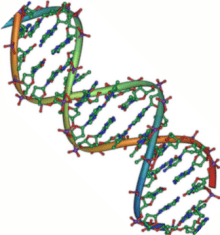Scientists Create Test Tube Brain, Use it to Play 20 Questions

In their experiment, the scientists used DNA molecules to construct a simplified neural network. We’ve seen artificially created neural networks before, but this one was made entirely from scratch. Because the interaction of DNA bases (you know, A-C-T-G) is well understood, the experimenters could “code” the molecules to perform as desired. Sort of like writing computer code, except with molecules. The interaction between DNA strands allowed scientists to simulate the firing of neurons, thus creating a neural network from 112 DNA strands. In order to observe the firing neurons, the researchers attached a fluorescent molecular marker.
This might sound dreadfully complicated, because it is dreadfully complicated. But the results were certainly rewarding. Once in place, the scientists tested the network by playing a yes or no answer game similar to 20 Questions. In the game, the network was tasked at guessing the identity of the scientists based off DNA encoded “hints” fed into the network. The results were read out through the fluorescent marker, along with error message-like indications to alert scientists that the provided information was incomplete or contradictory. In 27 complete tests, the test-tube brain got the correct answer every time.
Their work was published in the journal Nature.
(via Discovery News, image via Wikimedia)
Have a tip we should know? tips@themarysue.com